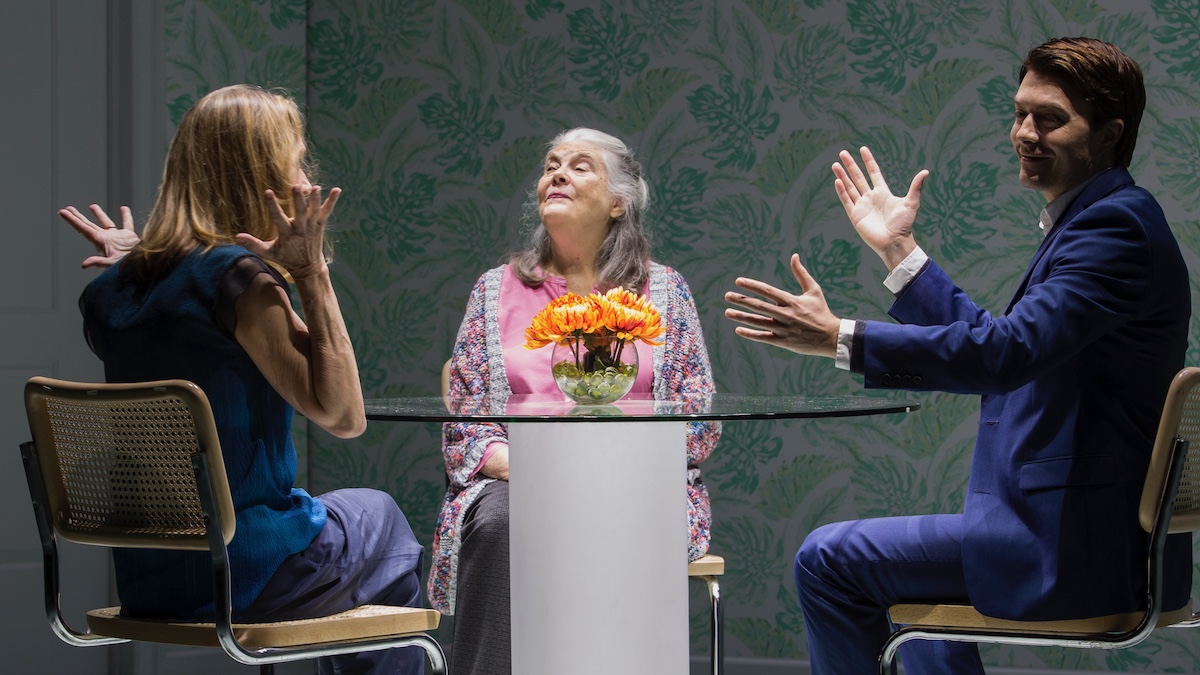
Playwright Ken Ludwig, creator of the beloved 1989 stage farce Lend Me a Tenor, has penned a new gender-swapped adaptation, Ken Ludwig’s Lend Me a Soprano (US/UK), which had its world premiere in 2022 at Houston’s Alley Theatre. The new play mirrors the plot of Ken Ludwig’s Lend Me a Tenor (US/UK) but replaces the male characters with female roles, and vice versa.
Both plays are set in 1934 at the fictional Cleveland Grand Opera Company. In Tenor, we meet Max, the general manager’s assistant who greatly admires the famous opera singer Tito Merelli. Tito is supposed to have arrived to perform for a very special event at the opera house, but it seems he might not appear. The general manager, Henry Saunders, leads the charge to make sure the performance can happen as planned. When Tito and his wife, Maria, finally do arrive, it becomes apparent that the shy Max will have to be persuaded to go on and save the show. Performing Ruggero Leoncavallo’s opera Pagliacci in a clown costume meant for Tito, Max embodies the role like a pro. With trickiness and savvy, Max has a metamorphosis that is quite unexpected.
Ken Ludwig’s Lend Me a Tenor has had theatrical success with productions on Broadway and in London’s West End. The play has also been seen on regional stages across the world and continues to receive rave reviews and awards recognition.
Ken Ludwig’s Lend Me a Soprano matches Tenor in its doses of comedy while offering a feast of complex comedic roles for female actors.
In Soprano, audiences are first introduced to the opera company’s general manager, Mrs. Wylie, a woman who isn’t afraid to speak her mind. She’s blunt, over the top and full of energy. Mrs. Wylie utilizes her manipulative nature to guide the other characters towards one goal: to ensure that the show, Georges Bizet’s opera Carmen, goes on. Enter Elena Firenze, the counterpart to Tenor’s Tito Merelli. Making her first appearance decked out in fur and jewels, Elena is established as a true diva who has a passionate yet unpredictable relationship with her husband, Pasquale. The audience also gets to know a third female lead, the quiet and contemplative Jo, who becomes a driving force as the counterpart to Tenor’s Max. Jo is initially a background character until crisis builds and Jo reveals a hidden desire to sing. Soon an idea arises for Jo to replace Elena, who is now presumed dead due to an overdose. In a surprising turn, Jo ultimately performs the opera. Possible suicide and mistaken identity align to move the characters in a frenzied manner from one predicament to another, with the trio of female principal roles taking the audience on a wild and funny ride.
Although the plots of Ludwig’s paired works are similar, the ways in which he portrays the female vs. male characters set the comedies apart. In Soprano, the women are less opposing, and the play centers more on the type of behavior that builds positive relationships. For example, the dynamic between Elena and Jo is one of kindness and encouragement, where as Tito and Max have a more contentious relationship.
Whether or not they are familiar with Ken Ludwig’s Lend Me a Tenor, audiences seeing Ken Ludwig’s Lend Me a Soprano will no doubt enjoy a refreshing and uplifting experience. And for female actors, Soprano offers a fresh array of multifaceted roles in a joyous comedy for the ages.
For more information about licensing one of Ken Ludwig’s plays, visit the Ken Ludwig Collection on the Concord Theatricals website in the US or UK.

A Children’s Theatre Classic: An Interview with Snow White And The Seven Dwarfs Composer Michael Valenti

Inspired by True Events: A Conversation with Playwright Ryan Spahn

